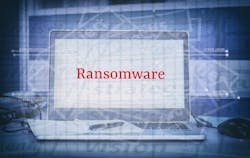A pediatrics practice, ABCD Pediatrics, serving the San Antonio, Texas metropolitan area reported that it was hit with a ransomware attack, but existing antivirus software helped to slow down the attack, and the practice's IT vendor successfully removed the virus and all corrupt data from its servers. However, because hackers may have accessed portions of the practice’s network, the pediatrics group is offering identity and credit protection services from Equifax Personal Solutions to all of its patients.
The pediatrics group, which has four locations, posted a “HIPAA Notification” on its website, regarding an incident that may have affected patients’ protected health information (PHI). The practice stated that the notice was made in compliance with the Health Insurance Portability and Accountability Act of 1996 (HIPAA).
Prior to the attack, ABCD Pediatrics had a variety of security measures in place, including network filtering and security monitoring, intrusion detection systems, firewalls, antivirus software, and password protection, according to the organization’s statement.
On February 6, 2017, an employee of ABCD Pediatrics discovered that a virus gained access and began encrypting ABCD’s servers. The encryption was slowed significantly by existing antivirus software. Upon discovery, ABCD immediately contacted its IT vendor, and ABCD’s servers and computers were promptly moved offline and analyzed. The virus was identified as “Dharma Ransomware,” which is a variant of an older ransomware virus called “CriSiS,” according to the organization’s IT vendor.
“ABCD’s IT company reported that these virus strains typically do not exfiltrate (“remove”) data from the server; however, exfiltration could not be ruled out. Also, during the analysis of ABCD’s servers and computers, suspicious user accounts were discovered suggesting that hackers may have accessed portions of ABCD’s network,” the organization stated.
The IT vendor successfully removed the virus and all corrupt data from its servers, and the practice said that secure backup data stored separately from its servers and computers was not compromised by the incident, and it was used to restore all affected data. According to the organization, no confidential information was lost or destroyed, including PHI, and the practice group never received a ransom demand or other communications from unknown persons. In addition to notifying its patients, ABCD notified the FBI and the U.S. Department of Health and Human Services.
According to the HHS’ Office of Civil Rights’ data breach portal, the incident affected 55,447 patients.
While the IT vendor found no evidence that confidential information was actually acquired or removed from its servers and computers, it could not rule out the possibility that confidential information may have been viewed and possibly was acquired, according the ABCD Pediatrics’ statement. Affected information may have included patients’ names, addresses, telephone numbers, dates of birth, Social Security Numbers, insurance billing information, medical records, and laboratory reports.
Following this incident, ABCD’s IT vendor located the source of the intrusion and implemented additional security measures, including state of the art cyber monitoring on its network, the organization said.
In addition to the identity and credit protection services from Equifax, the pediatrics group recommended that patients also place a fraud alert on their credit files.


